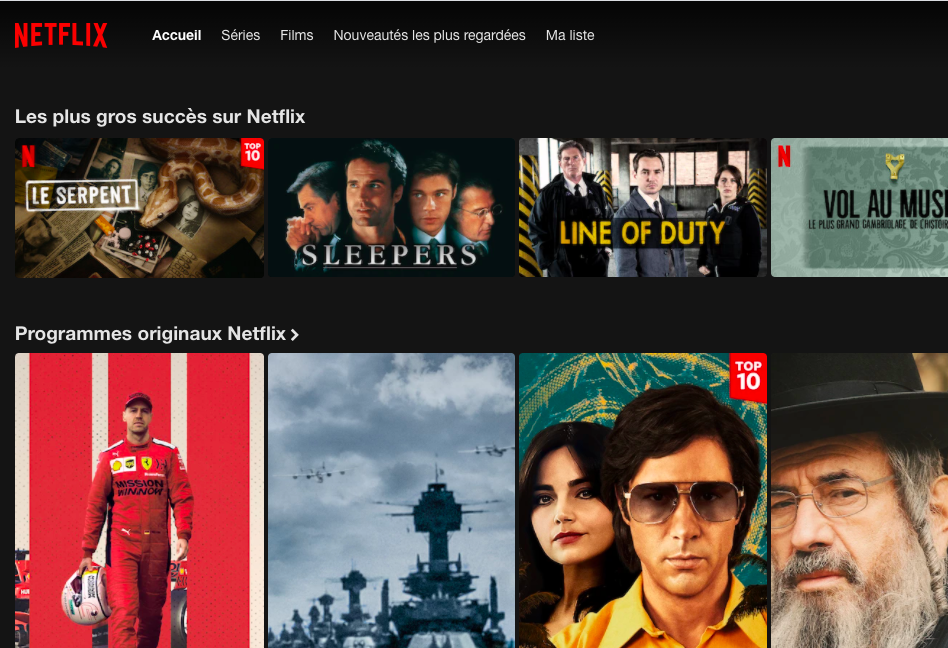How to Improve French for the Time Poor: 3 Hacks — Naked French
Learning French can be time consuming. Especially if you work full-time, manage a family — or even if you’re single and have a lot of partying to get through. Looking after yourself takes time. And it’s challenging to fit everything into a day, let alone the mere idea of carving out enough time to practice French.
Nevertheless, our trusty iPhones and digital devices mean that there are definitely many new ways to get immersed in French despite the time barriers. In fact, even if you’re time-poor, there’s nothing truly stopping you from reaching some fluency in French nowadays, as long as you put in a bit of consistency, routine, and discipline.
If you fine-tune your process to learning French to optimal productivity, there’s really no reason why you can’t make serious progress in 6-12 months, with a bit of elbow grease. So with no further ado, I’m going to share my top 3 (productive) ways to hack your way to French fluency.
1. How to improve French with Podcasts
Level: Beginner to Advanced
You probably commute every day in one form or another, whether it be on the metro or in the car. You also probably shower every day too (hopefully).

Transforming these 20-30 minute blocks of time into French practice is a really great way to optimize your learning, as well as your time.
Figure out what level you want to start with, find a French podcast and just let it run every day.
The key to success is to fine-tune your way into a habit that suits you so that you can just run on auto-pilot. So, don’t force yourself to check for progress each time you finish an episode, but rather just let it all sink in regularly in mini-doses. Consistent immersion is key.
Podcasts are available at every level so there’ll always be something to suit you. It’s definitely an easy way to hack your way into learning more of the language, in less time.
2. How to improve French with Netflix
Level: Pre-Intermediate and above
If you’re sitting at a comfortable A2, B1, or B2 level, but just don’t have time to expand your vocabulary, look no further than to Netflix. It’s a great way to consolidate your learning at the intermediate level.

Many of us watch some form of entertainment to switch off at the end of the day. If your preference is Netflix (or Disney, Hulu, etc), why not kill two birds with one stone and switch on the French subtitles?
You can even download useful extensions like Language Learning Netflix. This way, you can play both French and English subtitles simultaneously, and can quickly spot check what a word means if you’re unfamiliar with it.
If you’re at a high-intermediate level, you can even change the audio settings so that the series is dubbed in French. Whilst having French voice actors doing a voice-over doesn’t work for everything and can sometimes be quite hilarious, if you’re into watching The Roman Empire or Egyptian Saqqara Tomb documentaries, you’ll find that you’ll be able to have a high quality viewing experience — in French!
If Netflix is part of your regular wind-down routine, you’ll be surprised what an extra 20 minutes of French exposure does for your vocabulary.
3. Improving your French with Kindle + books
Level: Pre-Intermediate to Advanced
For those of you who read to relax, consider getting some books in French. As a nomad and frequent traveller, books are a luxury item for me. I can’t afford to keep them in my 45kg of baggage, so I’ve since relied heavily on my Kindle as my digital library. I often enjoy reading on lunch break, before bed, or even whilst waiting for the train.

It’s believed that over 10,000 words have shared roots in English and French, so you’ll be surprised at how many words you could recognise in a page.
Even though you might not be able to confidently speak, write, or understand French natives when they speak, you’ll probably be able to read and interpret the language with a lot more ease due to the similarities in English.
It’s believed that over 10,000 words have shared roots in English and French, so you’ll be surprised at how many words you could recognise in a page. Even though you might not be able to confidently speak, write, or understand French natives when they speak, you’ll probably be able to read and interpret the language with a lot more ease due to the similarities in English. You can actually highlight words in a Kindle and translate them from French to English with an in-built dictionary and translator, which makes language learning on a Kindle all the easier.
For pre-intermediate learners, especially on Kindle, there are many short stories in French designed with simpler vocabulary. You can also try children’s books — for example I’ve seen Matilda in French at the local library in Sydney.
Reading suggestions
Other suggestions I have are to re-read your favourite books in French.
For example Harry Potter or any other series you adore re-visiting over time.
It’s a lot easier to follow in French when you’re already familiar with the subject matter. Otherwise, look up topics that interest you in self-development, gardening, and so on. Instead of using an English recipe book, why not try looking up recipes in French?
Do you have any French language learning hacks to share? Let us know in the comments below.
Read more from
Michelle Teo – Naked French
Living in French: French podcasts I’m addicted to
How to Improve French for the Time Poor: 3 Hacks (this one)
My top 4 French learning apps
Interview: Michelle Teo, Founder of Naked French Insta and Podcast
Then there is the entire
Living in French Series to help you with your French learning
Part #1 – French Immersion at Home
Part #2 – Learning French with Audio
Part #3 – Learning French with Podcasts






